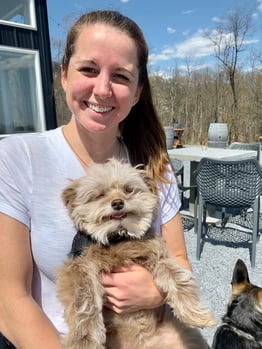Advice on Dealing with People - Reeve Foundation
At the end of this month, I’ll be celebrating 17 years since an accident that left me paralyzed and in a wheelchair. I’ve learned a few lessons since I was hurt at age 14, and I’ve managed to be thankful for (almost!) every day since.

One of the biggest lessons I’ve taken doesn’t have to do with a personal struggle of my own, actually, but it’s about how to deal with other people’s reactions to me. My story started in high school when my friends and I had to learn how to handle my new, paralyzed self; then when I went to college where I started growing into my disability a bit more. I didn’t start dating until I graduated, but that was a completely different monster. I even made a comic book of all the best stories. Joining the workforce, making friends as an adult, and navigating in the city I live as a disabled and grown woman have given me insight, horror stories, and enough lessons learned to fill another book.
Dealing with people is always the trickiest, though, because it requires me to be OK with myself before I can be OK with how other people respond to and interact with me and my disability. It’s not as much a lesson learned as much as a lesson I’m learning, because people keep changing on me. But I do have some pointers:
1. Have patience. This is my number one advice because it’s the most important – for dealing with challenging people, loving yourself, learning a new skill, driving in rush hour traffic, or any stressor you can think of. It all comes back to patience. In my experience, most of the time, people stare at me or get in my personal space because they’re curious about my condition, trying to help, or trying to get out of the way. Even if their intention is something completely other, my assuming their innocence helps me keep my peace.
2. If they want to stare, let ‘em stare. I used to think it impolite to stare at someone with a disability or difference, but there doesn’t have to be malice behind people’s curiosity. I’m someone who uses a wheelchair, so I look different. It’s nothing to get upset about. The response I’ve adopted to people’s gawking is a wide smile, a wave if it’s a child, and go about my business. Staring doesn’t have to be a rude thing – sometimes, it’s just curiosity.
3. But if they’re staring too long, go talk to them. Or not, depending on your personality. I’m a “Hi! I noticed you staring and wanted to introduce myself” kind of person, so I welcome it. I’d rather have a conversation with the stranger than have to sit in their center stage without saying anything at all. Heck, maybe I’ll even make a new friend.
4. Say “no,” but do it nicely. In my experience, people just love to put their hands on things: my wheelchair, to “help me” up a hill (without my asking); a piece of my chair, to “help me” assemble and disassemble it from my car (without my asking), and to “help me” open any door within 100 feet (without my asking). I used to get annoyed at people trying to help without my asking for it, but I’ve grown to be more chill about most things these days. I will tell someone to “let go, please” when they give me an unsolicited push up a hill, and I’ll still say “thanks for the help, but I’ve got this” to strangers when they grab my wheel and hand it to me outside my car, but I have no problem with someone opening the door for me or reaching something on the top shelf. I’m not willing to let their unsolicited help get in the way of my independence goals, but I’ve learned the boundary of accepting tiny bits of help and saying, “No, but thank you” to the bigger ones. Try not to let you being headstrong stand in the way of your manners.
I’m passionate about people, I always have been. My disability introduced me to a whole new set of interpersonal challenges, mostly focused on how I’m coming across to others, and how I’m dealing with how others are coming across to me. But that’s the fun part, right?
If you say “yes,” I’m glad at least someone agrees with me. But if you say “no,” hopefully, my advice can let you skip some of the hard lessons.
Kristin Beale is a native of Richmond, Virginia. She is the author of two books, Greater Things and A Million Suns, and a comic book, Date Me. Check them out and read an excerpt at https://kristinbeale.com/. Her comics can be found on Instagram @Greater.Things.Comics.
Join Our Movement
What started as an idea has become a national movement. With your support, we can influence policy and inspire lasting change.
Become an Advocate